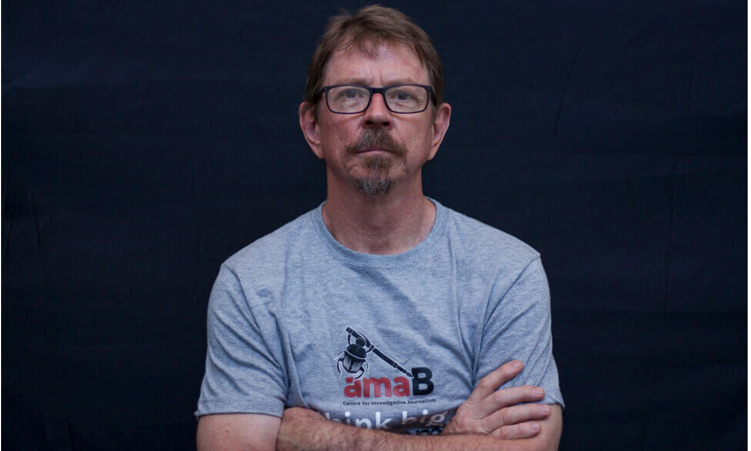This year has been, for multiple reasons, one of the amaBhungane Centre for Investigative Journalism’s toughest.
And yet, as we prepare ourselves for 2024, the global and domestic environments seem set to worsen both physically and politically.
In South Africa, we face watershed elections that could amplify our divisions rather than reimagine the foundation for a common purpose.
Around the world we have seen the rise of what one might call nihilistic identitarianism, in which the survival of one group of humans, their beliefs and interests is prioritised to the extent that talk of the violent extinction of states and nations has become commonplace.
In the United States, still the most powerful country on earth, the main opposition to the deeply flawed Democratic Party is essentially a millenarian cult captured by billionaires and grifters.
Meanwhile, the violent extinction of the natural world continues unabated, as do the fossil fuel and agricultural industries that mainly drive it.
COP28, the climate summit that is meant to chart a path away from a planetary crisis, was this year dominated by oil majors, petrostates and their clients, delivering what critics have labelled a giant COP-out.
Simultaneously, the mechanics and economics of modern politics, combined with a dystopian information environment, mean that the most successful players in our global political ecosystem seem to be the clear-eyed autocrats, whose ruthless self-interest appears at least rational and predictable.
In short, we are in trouble and it is going to require a whole generation to take on the task of a planetary reset and the cultivation of the political effort and imagination required to get there.
Looking back at 2023 we can say that, with your help, we have kept these values alive and even made a bit of impact.
One of the realisations we’ve had is that organised crime is a growing threat, amplified by the fact that in Zimbabwe we essentially have a mafia state next door that is hungry for opportunities to exploit across the border.
The risk posed by an intersection of business, politics and crime has always been a core focus for AmaBhungane and it’s what drove our initial interest in the attempted takeover of the troubled Tongaat Hulett group by the Rudland family.
AmaBhungane’s work has since been amply confirmed by the extraordinary Al Jazeera series on the so-called Zimbabwean gold mafia.
Russia is of course another state intent on breaking free of Western sanctions and unafraid to use influence operations and criminal elites to smooth its path.
‘Red’ flags have, therefore, been flapping since the start of December, given that Gwede Mantashe’s energy department and its subsidiaries have announced a deal with Gazprombank, a revived 2.5GW nuclear deal and a host of other rushed initiatives, including Karpowership and gas.
One gets the impression that the 2024 elections loom large in Mantashe’s calculations: faced with the possibility of a coalition government, he appears to be prioritising all the dirtiest deals, including those that could deliver on promises made long ago to Vladimir Putin. Watch this space.
From early this year warning flags about another South African businessman’s relationship with the Zimbabwean regime – and the availability of a trove of leaked data – prompted our focus on the Moti Group of companies.
This in turn provoked probably the most serious SLAPP (Strategic Litigation Against Public Participation) campaign in the post-apartheid era, as Zunaid Moti pushed back and weaponised the courts and social media to try to neutralise AmaBhungane.
This was not only an AmaBhungane issue. It impacted on South African media broadly and investigative journalism specifically.
The high court delivered a stinging rebuke to those seeking to limit media freedom, as well as a strong defence of the right to freedom of expression. More broadly, the pre-election period has been characterised by the ANC government forcing through a raft of problematic legislation, presumably as the threat of a reduced majority next year looms large.
Along with like-minded civil society organisations, we stand ready to challenge laws that fall short of our constitutional ideals.
In all of this, it’s your support and generosity that helps boost our resources and our morale. Thank you and see you in 2024.
- Sam Sole is the managing partner at the amaBhungane Centre for Investigative Journalism in South Africa.
The post Taking Stock, Taking A Breath and Stepping Up appeared first on The Namibian.



Leave a Reply